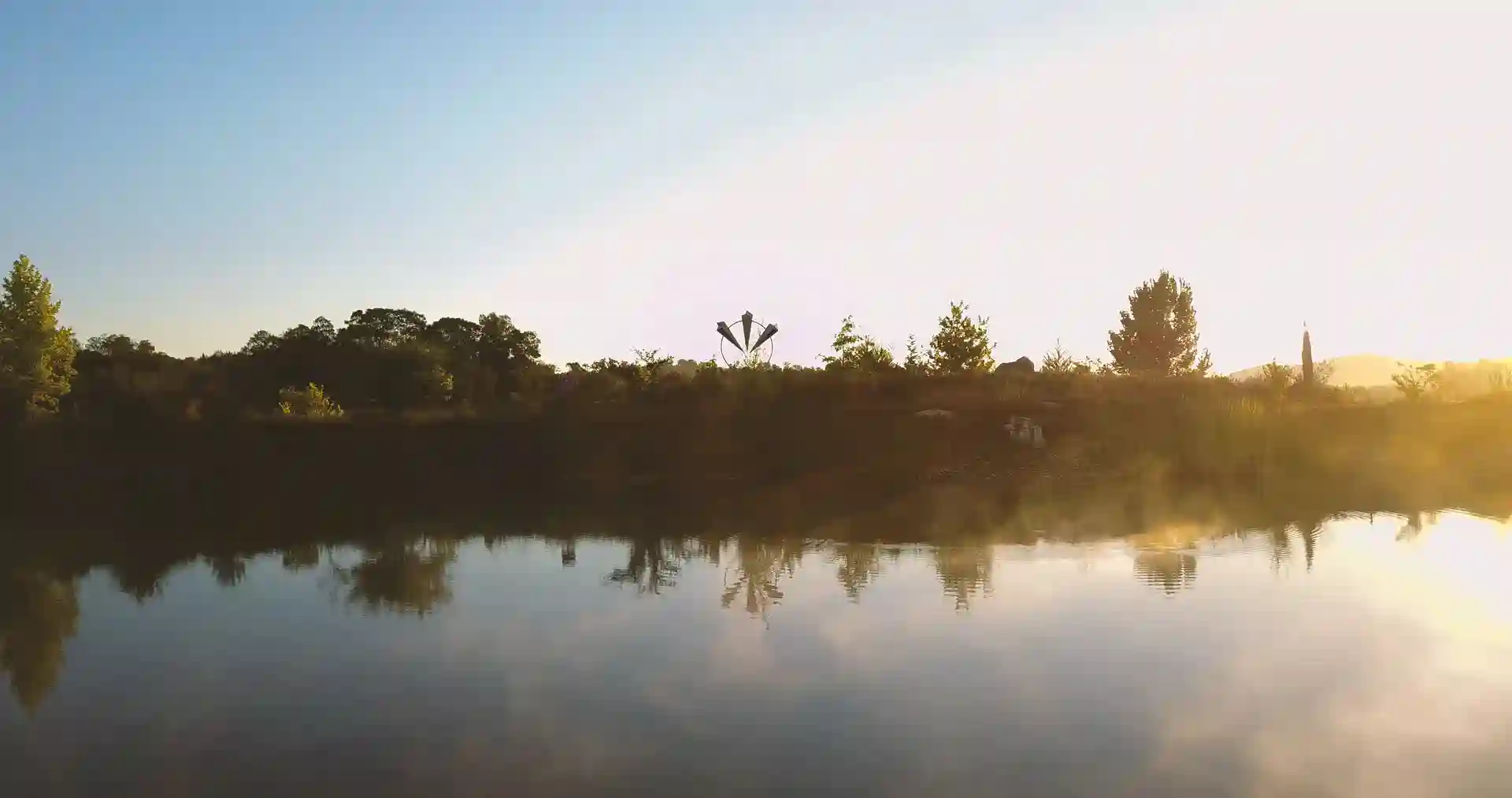Parents’ School
The Parents’ School is where parents, parents-to-be and caretakers, gather to learn and raise consciousness about how to accompany children as they grow up and deal with any issues that surface in contact. The focus is on establishing stable communitarian structures of solidarity where children can develop healthily. The key work is in building community and the healing of love, because these topics are crucial turning points from a closed system of fear to one of freedom and trust.
“Adults relate to children in the same way as they act in love. As we need to learn to leave the system of fixation and claims of possession in love, we need to learn the same thing in relation to children. So long as I live in a system of love that triggers the fear of loss within me, I will try to attach children to me and will, by doing so, generate fear of loss in them.”
GABRIELE BRUEGGEMANN
Vision
The destiny of our children will determine the future of our world. Their destiny is defined by the destiny of their parents and how they handle love. This is why it’s critical to work on new social structures for the caregivers of children that allow for the healing of love from the historic trauma of fear and mistrust. Responsibly accompanying children means we must be willing as adults to work on ourselves – so we don’t pass subconscious patterns of fear onto them.
Family in Tamera, in most cases, isn’t just the traditional nuclear family of mother, father and siblings. More often than not, it’s a family of choice – a small circle of adults whom the children love and who are committed to accompanying them until they’re grown up.
This family unit is in turn embedded in the community that supports the adults to love freely without fear, so they don’t need to separate if they desire or love another. Children love freely without judgment, and in a larger social environment, they can express this love to more people, building trust and learning from them. A community provides a diversity of people with different human qualities who children naturally connect to and who take responsibility for the upbringing of all children. By allowing them to follow their loving impulses, we make it possible to grow up without the conditioning of fear in love.
Raising and accompanying children in community isn’t a private affair as the whole community takes responsibility for their care. Adults entering Tamera as parents or parents-to-be in the community must not see their children as “theirs” to privately possess, and must allow other people to have a say in how they raise them. This is the fundamental change from a private to a communitarian way of raising children, from fear to trust.
The Parents’ School provides spaces of trust to embed our processes, discuss questions around the children in community and receive supportive feedback from the others. Facilitated by the leading team of our Children’s Place, parents and other caregivers raise consciousness about raising free children. Parents’ School is closely aligned with Love School, because the way we relate to our children often follows the same patterns as our love relationships.
What We Do
- learn how to give healing orientation to children
- become coherent as a community in how we deal with children
- transfer the knowledge we’ve gathered in the last 15 years of research in our Children’s Place
- study the necessary system change in love and develop an image of love free of blackmailing and possessiveness
- share important experiences with our children
- study the different developmental stages of children.
Before we invite children into our lives, we must make sure they will enter a stable social situation. In community, the decision to conceive children isn’t only taken by the two parents conceiving them, but is a communitarian decision too, as the community is involved in their upbringing. The Parents’ School provides space to prepare and accompany couples to become parents and to make that decision in alignment with the community. Those who want to become parents are asked to speak from their heart about why they want to become parents and how they want to raise their children.
In this work, we see that the conflicts and difficulties our children face most often reflect the conflicts of their parents or the adults around them. Children intuitively perceive when adults are trapped in unspoken conflict and point us to unspoken and suppressed issues among the adults. We’ve also seen that the children will immediately find relief and change their behavior when adults take responsibility for and work on their interpersonal issues.
Mothers can find themselves faced with questions like, “When should my child make what step of development?” “How long should I breastfeed my child for?” “Is it right or wrong that my child cries now?” and so on. It’s hard to find role models for motherhood when so many of the patterns guiding us come from a culture of fear. We get very little healthy guidance from “civilized” societies. But mothers have an intuitive source of knowledge about the right way of being with their children. We focus on connecting with this wisdom, and then we often experience how things just happen naturally as if “by themselves.” Anchoring in community allows mothers to tap into this intrinsic knowledge about raising children.
A key issue of the Parents’ School is healing motherhood. A child loves their mother unconditionally, without any doubt. The love between mother and child, and mother and son in particular, is a powerful archetypal image of love in our souls that needs collective redemption and healing. Many women are unable to fully accept the love of their son, because of our cultural history in which the love between mother and son was prohibited. For a man, this can mean we aren’t used to being loved and have difficulties loving women. If we respond to a child’s love by creating a possessive relationship, they get confused, fearful and angry. We work on a culture where adults are able to respond with full genuine love to their children’s love. We work on a new image of motherhood in a peace culture, where mothers care for all the children as community builders. Mothers need to take on tasks in the community that allow them to set their enormous loving potential free – for the benefit of all.

